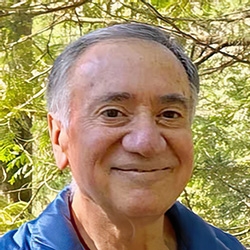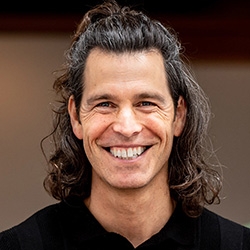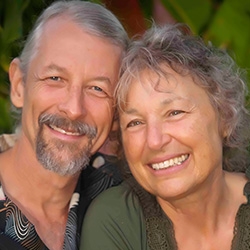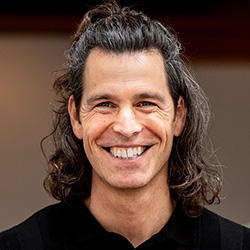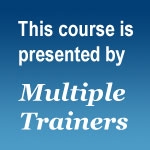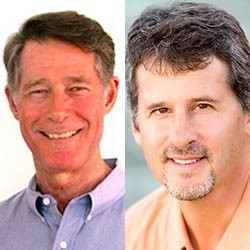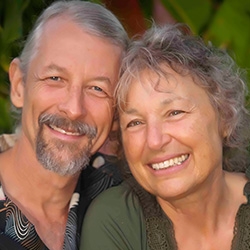

Search Results: conflict
-
Avoiding conflict is an even greater issue than having conflict. Not being as competent at conflict we avoid it. And in many cases that creates more conflict. Conflict is inevitable because we have different perspectives. Conflict is not bad. It is an opportunity for increased connection, intimacy, joy, and creative win-win solutions. Instead of avoiding conflict, we can work on increasing our skill in handling conflict.
-
This exercise will help you resolve situations in which you have two needs which seem to be in conflict with each other, transforming inner conflict into peace.
-
Conflict is a normal and natural part of life. To varying degrees, it happens whenever two or more people consistently spend time together. Resolving conflict effectively and peacefully, in a way in which all parties feel respected and valued, does not feel natural for those of us who grew up with punitive, adversarial, or avoidant approaches to conflict. Eric offers some tips for approaching conflict.
-
Trainer Tip: Use conflict with others as a way to learn more about yourself.
-
Strengthen your NVC practice to meet conflict with empathy, and ask for what you need.
-
Here are five practical ideas for creating simple agreements with a group when conflict arises.
-
Experience NVC tools for mediating conflict—whether you're involved or supporting others.
-
Jim and Jori offer a tip to stay present in the face of our reactivity to witnessed conflict.
-
Explore how NVC supports mediation and conflict resolution in this engaging course recording.
-
Trust, flow, information sharing, and learning is reduced in conflict. Conflict can indicate incapacity in at least one of five systems that every group, community, or organization needs to function. Attending to conflict at systems-level helps reduce over relying on momentary connection that isn’t anchored in decisions about what comes next. When there's enough agreed upon systems within capacity, that attend to enough kinds of situations, we're likely to have little conflict.
-
How do you solve a conflict? By not trying to solve it! Yoram suggests building your conflict resolution muscles by practicing connecting to the needs behind the conflict instead. Check out this excerpt from Session 1 of his 2021 course, Connecting in Conflict and the Art of Navigating Dialogue. Listen.
-
Mediating a conflict conversation can be challenging – but with tools and practice, that challenge can be transformed. If you're curious about the specific steps needed to achieve that transformation, join John for an exploration of his non-dual mindfulness practice.
-
Trainer Tip: When there's conflict if you set the intention to connect and build trust first, you're more likely to move towards resolution. This can be built through offering reflections that captures essence of what's important to each party. Once connection and trust is established, then begin the process of creating strategies and solutions.
-
Apply NVC mediation skills in child-related conflicts, for parents, teachers, and others.
-
Shift how you respond to conflict with this Mediate Your Life course and create lasting change.
-
Trainer Tip: When there is conflict, the chances are good that people are arguing over a particular strategy. When we focus on our needs, the opportunities for peaceful resolution that values everyone’s needs are much greater. This can also build trust. Be aware of opportunities to shift focus from strategies to needs. Read on for an example of how this can work.
-
Use NVC and mediation tools to transform conflict into authentic connection.
-
Learn to pause before reacting and gain practical tools to meet conflict with compassion.
-
To resolve conflict, information of what's important to each party, plus corrections, needs to be included and built upon. Here we explore nine patterns of ongoing conflict, including diagnosis; assuming understanding; refuting; unhelpful communication mediums; over focus on intent over effect; and “hit-and-run” engagement. This is part one of a two part series.
-
Here we explore variants of conflict patterns in part two (of this two part series) that include: refuting "straw man arguments"; not checking understanding, repeating unhelpful behaviour; repeatedly asking for what's already given; asserting rather than demonstrating responsiveness; assumptions; denying conflict exists; neglecting interdependence; stonewalling; absence of curiosity, humility, respect, empathy or care (even when reflecting).

Quick Links
Subscription Preferences
Stay In Touch!
Looking for ways to keep up with NVC Academy news, get special offers, free resources, or words of inspiration? Here are five ways to stay engaged:


